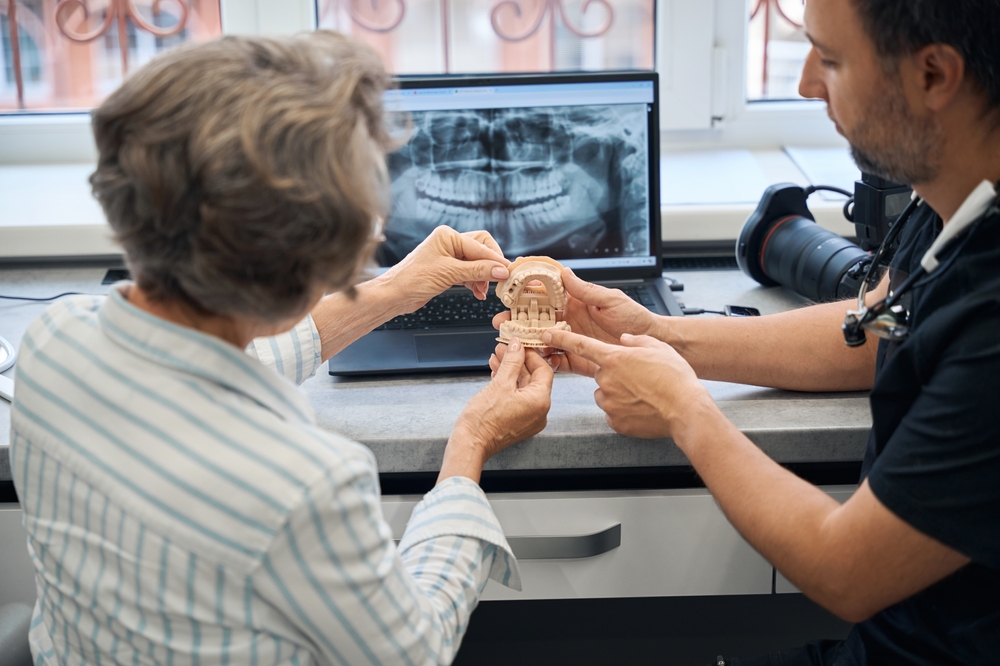What Is a Root Canal Re-Treat?

While a root canal is a common procedure used to address severe tooth decay and infection of a tooth’s pulp, there are some situations where complications might arise due to improper healing or other causes. Fortunately, this does not inevitably mean that the tooth must be removed. Depending on the condition of the gums and the bones supporting the affected area, often retreatment can be performed.
Why might a root canal retreatment be required?
Some pain and discomfort can be expected directly following a root canal, but prolonged pain long that is still present for months following the procedure is not normal. Sometimes the dentist might not detect complex canal structures or the presence of curved or narrow canals during the original treatment, which can result in reinfection. Additionally, issues can occur if there is a delay in the placement of the crown or if the restoration did not adequately protect the inside of the tooth from salivary contamination. Even if the treated tooth does heal correctly, new issues can arise such as a tooth fracture, a broken crown or new decay.
What does the procedure involve?
Patients are often comforted to learn that having a retreatment performed is very similar to the original procedure and can often be completed in one to two appointments. First, the patient is given a local anesthetic to numb the area, and a rubber dam is used to isolate the affected tooth and prevent exposure to harmful bacteria. The dentist will remove the crown, post and filling material to gain access to the inside of the tooth.
Next, instruments will be used to thoroughly clean the canals and reshape them if needed. The dentist may use X-rays and special lighting to prevent leaving anything behind. Finally, the canals will be refilled and a new crown attached.
How successful are retreatment procedures?
According to a 2016 study published by the American Association of Endodontists, root canal retreatment using modern procedures has an estimated success rate of 90.4% after two years. While this means a patient’s tooth may not be saved in every case, there is a good chance a dentist can avoid having to extract the tooth by first attempting a re-treat. It is important that candidates have healthy gums, a solid surface and good bone support.
Are there any alternatives?
If a patient is not a good candidate for a retreatment, there are other alternatives a dentist can turn to. One option is for patients to have an apicoectomy, or root end surgery. During this procedure, the dentist will make a cut into the gums near the infected tooth to remove any affected tissue and to remove the tooth’s root. The area is then sealed and stitched. If this procedure is not a possibility, tooth extraction may be necessary.
Conclusion
It can be frustrating for a patient to learn that a root canal treatment was not successful and needs to be repeated. However, retreatment is often a successful procedure and can help prevent tooth loss.
Request an appointment here: https://infinitedentalwellness.com or call Infinite Dental Wellness at (818) 541-1110 for an appointment in our Glendale office.
Check out what others are saying about our services on Yelp: Read our Yelp reviews.
Recent Posts
If you’re missing most or all of your teeth, you’ve likely heard about All-on-4 implants and implant-supported dentures—two of Glendale’s most popular full-mouth restoration options. Both can restore your ability to eat, speak, and smile confidently again. But how do you know which one is the right choice for you?At Infinite Dental Wellness in Glendale,…
If you’ve been putting off getting dental implants, you are not alone. Many people in Glendale wait, often because of concerns about cost, time, or the procedure itself. But what most don't realize is that when it comes to replacing missing teeth, time is not on your side. The longer you wait, the more complex…
If you’ve been thinking about replacing missing teeth, it’s normal to have questions about what the dental implant process really looks like. At Infinite Dental Wellness in Glendale, CA, we believe every patient deserves a clear, comfortable, and confidence-building experience—from the very first consultation to your final restored smile.Dental implants are more than just a…
If you’re tired of dentures that slip, click, or limit what you can eat, you’re not alone. Many patients in Glendale, CA are moving toward implant-supported dentures and full mouth restorations as a lasting, comfortable alternative. These modern solutions blend the stability of dental implants with the natural look and feel of custom-designed teeth—helping you…



